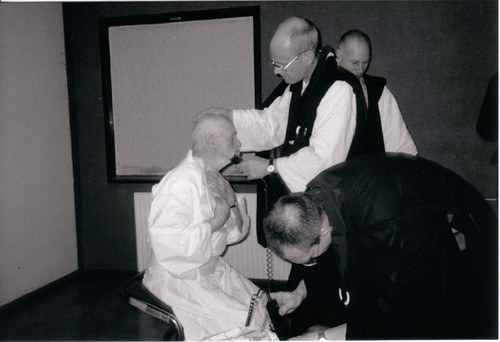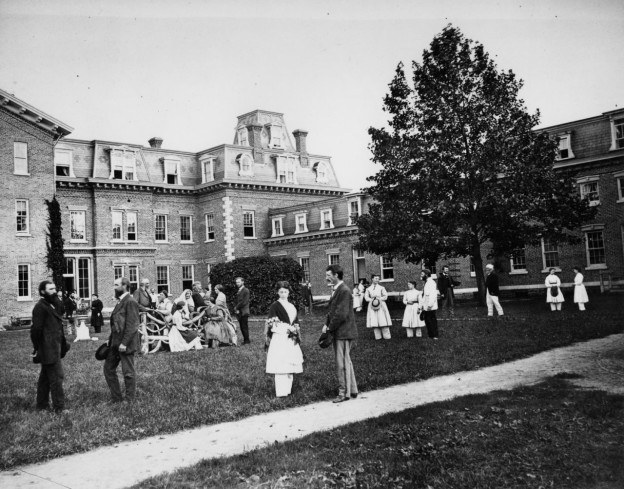Searching for Utopia
Searching for Utopia is a series about utopian societies exploring the benefits of community cooperation and its dark sides — how the rejection of the status quo can morph into extremism and fanaticism. We explore communities both abroad and at home, alongside America’s history with utopian ideas, sects, and cults past and present.
The freedoms and failures of of an intentional community in India

Arial view of Auroville. Auroville is an experimental township in Viluppuram district mostly in the state of Tamil Nadu, India with some parts in the Union Territory of Puducherry in India. Photo by Vyas Abhishek/Shutterstock.
Utopian societies are not a modern invention. The word ‘utopia’ was first coined in 1517 by Sir Thomas Moore. Though his vision for the perfect society was more puritanical than the free love hippie communes of the ‘60s and ‘70s, the ideal is the same — a rejection of the tyrannies of the established state and an embrace of a more egalitarian form of society.
History is rife with examples of these communities, and, for better or worse, utopian systems continue to exist — communes, monasteries, ashrams, and intentional communities all embrace communality, simplicity, and egalitarian values. But what happens when the noble intentions of the collective collide with the complexities and differences of human nature?
Akash Kapur is author of “Better To Have Gone: Love, Death And The Quest For Utopia In Auroville.” Kapur was raised in an intentional community in India, then moved to the U.S. at age 16, where he attended a prestigious East Coast boarding school and later attended Harvard University. He joins Life Examined host Jonathan Bastian to talk about the realities of life in utopian communities and his experiences in Auroville, the intentional community in India where he and his wife Auralice Graft grew up.
Listen below and read more from this story here.
How ‘60s and ‘70s America gave rise to cult leaders

John Shodo Flatt of the Osho movement prepares for ordination. Photo courtesy of Big Mind Zen Center/Creative Commons
Host Jonathan Bastian talks with Ben Zeller, Associate Professor of Religion at Lake Forest College and author of "Heaven's Gate: America's UFO Religion," about the characteristics of cults and cult leaders and their utopian impulses to make a better world.
Listen below and read more from this story here.
The past and present of American utopianism

Residents of the utopian community Oneida Community House enjoy time together outdoors. Photo courtesy of the Oneida Community House.
Well before the counterculture years of the ‘60s and ‘70s , 17th and 18th century America offered fertile grounds for those with utopian impulses. Groups like the Shakers, the Oneida community, and even the ideas of the Transcendentalists were founded on the notion that their societies would be so appealing and perfect that they would give rise to larger movements.
Most collapsed, torn apart by the realities of life and human nature. Today they provide interesting critiques of the worlds in which they came to be, and some even carry lasting legacies, like public schools and libraries. Host Jonathan Bastian talks with Chris Jennings, writer and author of “Paradise Now; The Story of American Utopianism,” and traces the history of some of America’s earliest brick and mortar utopian communities
The majority of those 18th and 19th century America’s utopian visions were on the extreme end of the spectrum — imposing strict rules to achieve a perfect society had a habit of bumping up against human nature.
Today, however, there are plenty of intentional communities all over the U.S., perhaps with less rigid rules and more realistic ideals. Many of them center around creative ways to share land and housing. Bastian follows with a conversation with Anna Newcomb, founder and 20-year resident of Blueberry Hill, a co-housing community in Northern Virginia, about the joys and appeal of community living.
Listen below and read more from this story here.
